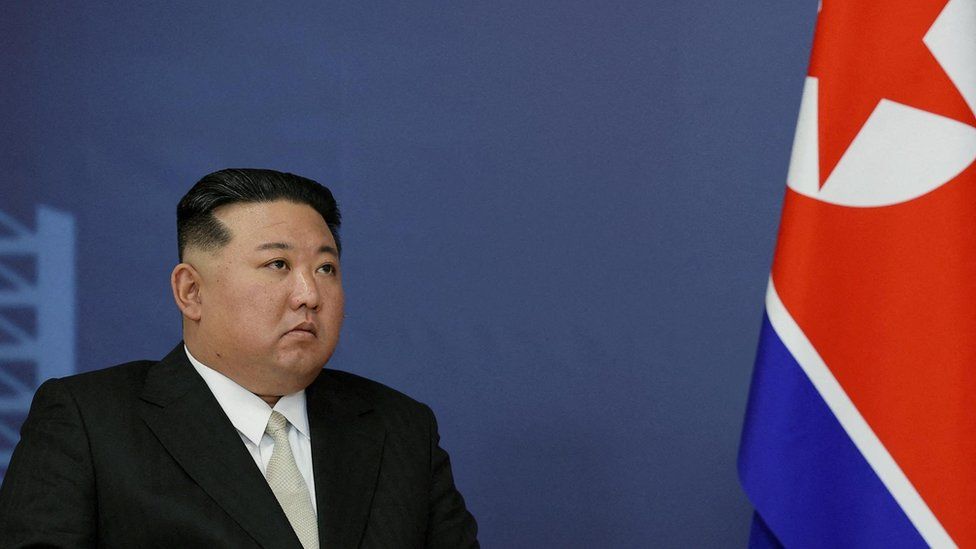-

-
-
Loading

Loading

Rare footage obtained by BBC Korean shows two teenage boys in North Korea being publicly sentenced to 12 years of hard labor for watching K-dramas. The video, believed to be from 2022, depicts the boys, aged 16, being handcuffed in front of a large crowd of students at an outdoor stadium. Uniformed officers are seen reprimanding the boys for their actions and their failure to deeply reflect on their mistakes. South Korean entertainment, including TV shows, is prohibited in North Korea, but some individuals are willing to risk severe punishment in order to access K-dramas, which have a significant global following. Footage like this is extremely rare due to the North Korean government's strict control over the dissemination of information and media. The video was provided to the BBC by the South and North Development (Sand), a research institute that collaborates with defectors from North Korea. It suggests that authorities are taking stricter measures against such incidents. The clip is reportedly being distributed within North Korea for ideology education and as a warning to citizens about watching "decadent recordings". The video includes a narrator who repeats state propaganda, criticizing the influence of South Korean culture on teenagers and accusing them of ruining their own futures at such a young age. The boys were also publicly identified and had their addresses revealed. In the past, minors who engaged in such activities would typically be sent to youth labor camps rather than imprisoned, with punishments generally under five years. However, in 2020, Pyongyang enacted a law that made watching or distributing South Korean entertainment punishable by death. A defector previously shared with the BBC a gruesome account of witnessing a 22-year-old man being shot to death for listening to South Korean music and sharing films from the South. Choi Kyong-hui, CEO of Sand, explains that Pyongyang views the spread of K-dramas and K-pop as a threat to its ideological control, believing that admiration for South Korean society can weaken the monolithic ideology that reveres the Kim family. North Koreans first began experiencing South Korean entertainment in the 2000s during the "sunshine policy" period when the South offered unconditional economic and humanitarian aid to the North. The policy ended in 2010 due to concerns that the aid was not reaching ordinary North Koreans and had not brought about positive changes in Pyongyang's behavior. However, South Korean entertainment continued to reach North Korea through China. The defector quoted by BBC Korean describes Korean dramas as a form of escapism for North Korean people, allowing them to momentarily forget their difficult reality. Another defector in her 20s suggests that North Korean authorities are wary of the influence of South Korean dramas because they depict a vastly different world from the one that North Koreans are taught to believe exists. The report also includes additional reporting by Kelly Ng in Singapore.